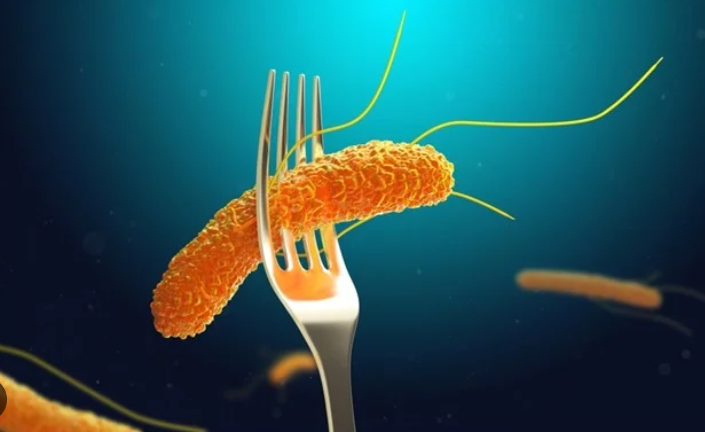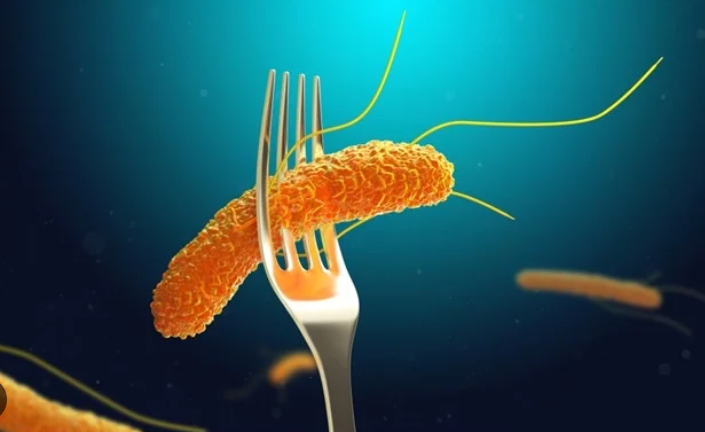Cases keep rising in an outbreak of salmonella illness tied to cantaloupes that began last month, with 302 people now sickened across 42 states, federal officials said.
The most recent update from the U.S. Food and Drug Administration (FDA) stated that as of December 15, 129 people had been hospitalized and four people had died as a result of the outbreak.
Health officials in Canada reported that by December 15, 153 cases connected to the same outbreak had been recorded, resulting in 53 hospital admissions and six fatalities. Although salmonella can infect anyone, the U.S. Centers for Disease Control and Prevention (CDC) reported in its own update that illnesses associated with this outbreak have been exceptionally severe. Particularly vulnerable seem to be the elderly and very young.

There are over 300 known cases of salmonella-tainted cantaloupe
“Adults 65 and older, children under 5 years, and people with weakened immune systems are more likely to get very sick from Salmonella,” the CDC said. “In this outbreak, 40 sick people resided in long-term care facilities and 30 children attended childcare centers before they got sick.” The CDC’s main advice: Although two brands of cantaloupes—Malichita and Rudy—are known to be linked to the outbreak, do not eat any cantaloupe if you do not know the brand being sold or served. Given the number of cases observed among the elderly and children, the “CDC [also] advises facilities that care for people who are at higher risk for severe illness to not serve cantaloupes that may be contaminated,” the agency said. “This includes recalled cantaloupes and cantaloupe that was supplied pre-cut if the brand of whole cantaloupes used is not known.” The outbreak began on November 14. The CDC has stressed that the true number of illnesses is likely far higher than announced because many people recover without medical care and are not tested for salmonella.

FDA update
Consumers should continue to stay away from whole cantaloupes sold under the brands Malichita or Rudy. The CDC also said the recall now includes pre-cut cantaloupe sold at major grocery stores such as Kroger, Trader Joe’s and Sprouts Farmers Market. One more brand was added to the list since the last FDA update: “Stop & Shop initiated a recall of TruFresh cantaloupe that was purchased between the dates of Oct. 23 and Nov. 11, 2023,” the FDA noted. Consumers should also refrain from buying pre-cut cantaloupe sold at ALDI, Cut Fruit Express, KwikTrip, TGD Cuts, Vinyard, and Bix Produce, the agency said.

It also said consumers should buy RaceTrac fruit medley as well as Freshness Guaranteed products, which are sold at Walmart, the agency said.The CDC has advised people to throw away recalled fruit or return it to the store for a refund. Afterwards, wash anything that has touched the recalled fruit. Salmonella causes diarrhea, fever, and stomach cramps in most cases, with symptoms setting in anywhere from six hours to six days after eating contaminated food, the CDC said.

Symptoms of salmonella
Call your doctor right away if you have any of these severe salmonella symptoms:
- Diarrhea and a fever higher than 102 degrees
- Diarrhea for more than three days that is not improving
- Bloody diarrhea
- There is so much vomiting that you cannot keep liquids down
- Not peeing much
- Dry mouth and throat
- Dizziness when standing up

Frequently asked questions
What are Salmonella?
Salmonella is a bacteria that makes people sick.
What are the symptoms of infection?
Most people with a Salmonella infection have diarrhea, fever, and stomach cramps.
Symptoms usually begin six hours to six days after the infection and last four to seven days. However, some people do not develop symptoms for several weeks after infection and others experience symptoms for several weeks.
Salmonella strains sometimes cause infections in urine, blood, bones, joints, or the nervous system (spinal fluid and brain) and can cause severe disease.
Also read-Understanding And Managing Coughs And Colds: Comprehensive Remedies
images source: Google
Disclaimer: The opinions and suggestions expressed in this article are solely those of the individual analysts. These are not the opinions of HNN. For more, please consult with your doctor




































